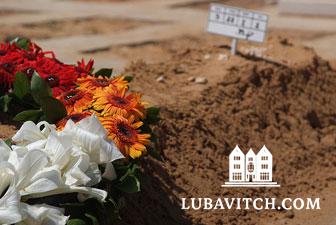Across the country, Chabad representatives are reaching out to their respective communities in response to recent events. Lubavitch.com asked one Chabad campus rabbi to share his thoughts here.
Up until the morning of April 16, things were pretty much happening as they should on most American campuses at this time of year. Students and faculty were busy with finals, graduation plans and end-of-year events.
Then violence of the kind we’ve come to expect in Iraq or Afghanistan broke out in the idyllic setting of an American college campus. This time, it hit very close to home, and became a more personal tragedy for many Americans.
Tragedies are rarely explained with any satisfaction. The shootings at Virginia Tech this weekend had mothers and fathers, students and educators shaking their heads in sad bewilderment, with no explanations, no reason.
Tragic as it was, the news cycle has begun to move on, the lives cut short soon to become another statistic.
But to those affected, that’s insult piled on to injury. They want their loved ones to live on, at least in the minds of those who've been spared.
Judaism has a long tradition of redeeming a negative experience by positive action. It encourages meaningful activities in response to senseless tragedy, as a way to somehow bring the world back into balance. And people too, experiencing the fright of random acts of terror, yearn to respond with “random” acts of goodness, and to challenge meaningless violence with meaningful kindness.
Of course, there will be lessons learned practically – lessons about campus security, prevention, and identifying potential danger.
Spiritually, there are lessons to be learned as well: If one individual has the capacity to create such havoc and tragedy, surely so much can be achieved if numerous individuals would harness their energy to do good. Imagine the change we can affect if we manage to reach one fellow human being and touch him or her positively, with one act of kindness. How many lives would have been so different today if only someone had gotten through to that one troubled classmate in a timely fashion?
We may not be in charge of campus security. We’re not running the criminal investigation. We’re not counseling the survivors or the VT community. But each of us can make sure to pay more attention, and make it our responsibility to care. We can make sure to behave a little bit differently this week and in the weeks to come, to smile at somebody unexpectedly, to share some concern with the people outside of our immediate social bubble.
We can light a candle – not only physically, but also internally, illuminating our own hearts and souls and those of the people around us. And that would indeed be a fitting memorial, a way to show we really do care.
For so many of my colleagues on campuses around the country, this tragedy has become something very personal. Rabbi Shlomo Mayer at the University of Virginia was not only called in to help with the immediate realities of a family in mourning half a world away from their loved ones, but as the only native-born Romanian Chabad Rabbi in the world, he was uniquely qualified to bring comfort to the mourning Professor Librescu’s wife, herself of Romania.
Many of my colleagues on campuses nationwide joined in an initiative to have Shabbat candles lit in memory of Professor Librescu, which reached thousands of Jewish women on campuses throughout the country this past Friday night. Other Chabad Rabbis and Rebbetzins are developing and implementing a far-reaching Hearts for Hokies campaign, instituting at their respective campuses a weeklong outburst of acts of goodness and kindness.
And at Virginia Tech itself, Rabbi Yossel Kranz, Director of Chabad of the Virginias, announced that he will be opening a Chabad House in the coming months, a place that will bear the name of the slain professor, and bring healing and growth to the university's students.
These, I believe, are examples of what happens when we make the suffering of others a personal matter.
The holy Baal Shem Tov taught that everything that a person hears or sees in this world can and must be used as a personal lesson for improvement and growth. Though we may not be able to make sense of somebody else’s actions, we can ensure that they will challenge us to make sense of our own.
Rabbi Dov Wagner is the Chabad representative to the University of Southern California.

Be the first to write a comment.